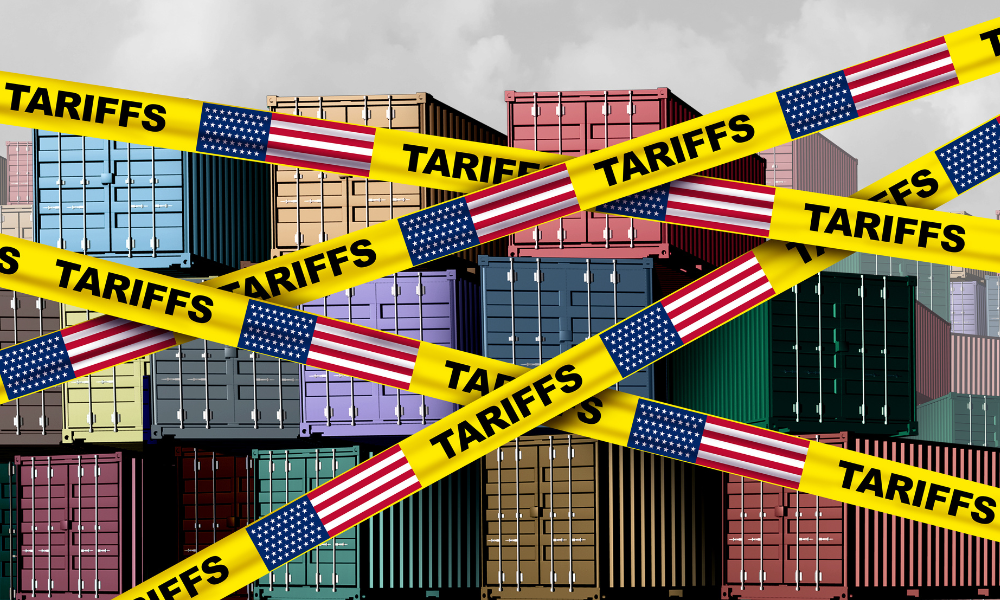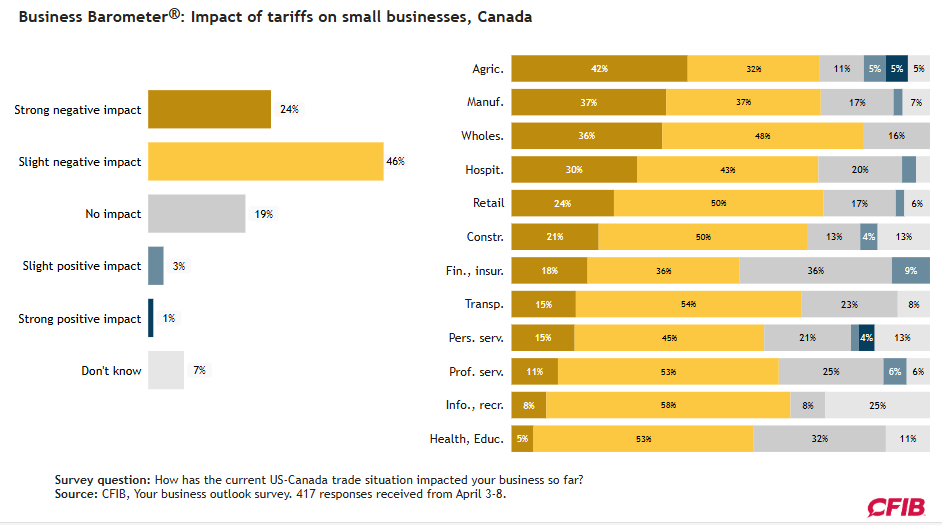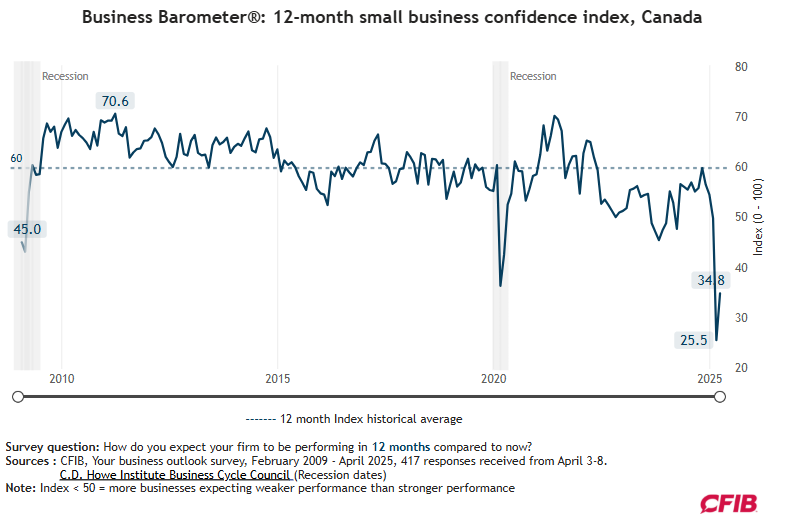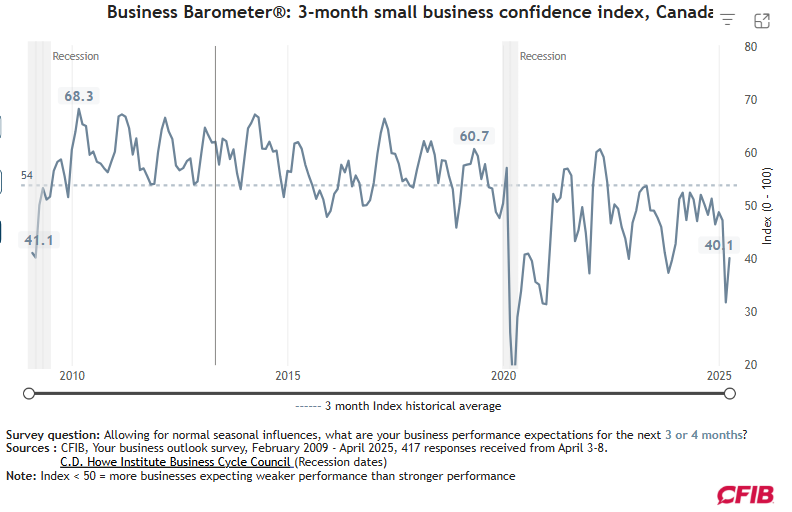
Despite some improvement, 'we've only gone from an extremely pessimistic outlook to just pessimistic'

U.S. tariffs are already having a negative impact on small and mid-sized firms across Canada, according to a report from the Canadian Federation of Independent Business (CFIB).
Overall, 46% of these businesses report a slight negative impact from the tariffs, while 24% say they have experienced a strong negative effect.
The impact is evident across sectors.

“The cost of doing business is still expensive. The uncertainty caused by the current political environment and the trade war is slowing down consumer spending, leading to fewer sales and lower revenue for many business owners,” says Andreea Bourgeois, CFIB’s director of economics.
Just under 1 in 5 (19%) report no negative impact from the U.S.-imposed tariffs, and far fewer (4%) have seen any positive effects.
Previously, Prime Minister Mark announced his plan to create a $2 billion Strategic Response Fund that will boost the auto sector’s competitiveness and protect manufacturing jobs — a move against U.S. President Donald Trump’s tariffs.
As the U.S. tariff issue continues, small business confidence has shown modest improvement. The 12-month confidence index rose by 9.3 points in April, reaching 34.8, up from a record low of 25.0 in March, according to CFIB’s survey of over 400 respondents conducted in early April.
“The long-term outlook has slightly recovered, but it’s still at abysmal levels. In fact, it’s only reached the March 2020 level of optimism. So, while the business sentiment trended in the right direction this month, partly due to the elimination of the federal carbon tax, small businesses are still feeling worried and uncertain about the future,” says Bourgeois.
“We’ve only gone from an extremely pessimistic outlook to just pessimistic.”

The 3-month index also recovered to 40.1 from 31.7 in March.

The federal government has made regulations that cease the application of the federal fuel charge, effective April 1, 2025.
The regulations also ceased the application of certain administrative requirements that “are no longer necessary,” says the federal government. Specifically:
Concerns over tariffs have dragged down the economic confidence of chief executive officers in the first quarter of 2025, according to a previous report from Vistage.
Full-time staffing plans recovered slightly also in April, but they are well below normal for this time of the year, according to CFIB. Currently, 14% of firms are planning to hire and 17% are estimating layoffs for the next 12 months.
The numbers were 10% and 19%, respectively, in the previous month.
The U.S. tariffs could lead to a surge in Canada’s unemployment rate, one expert from TD Bank previously noted.